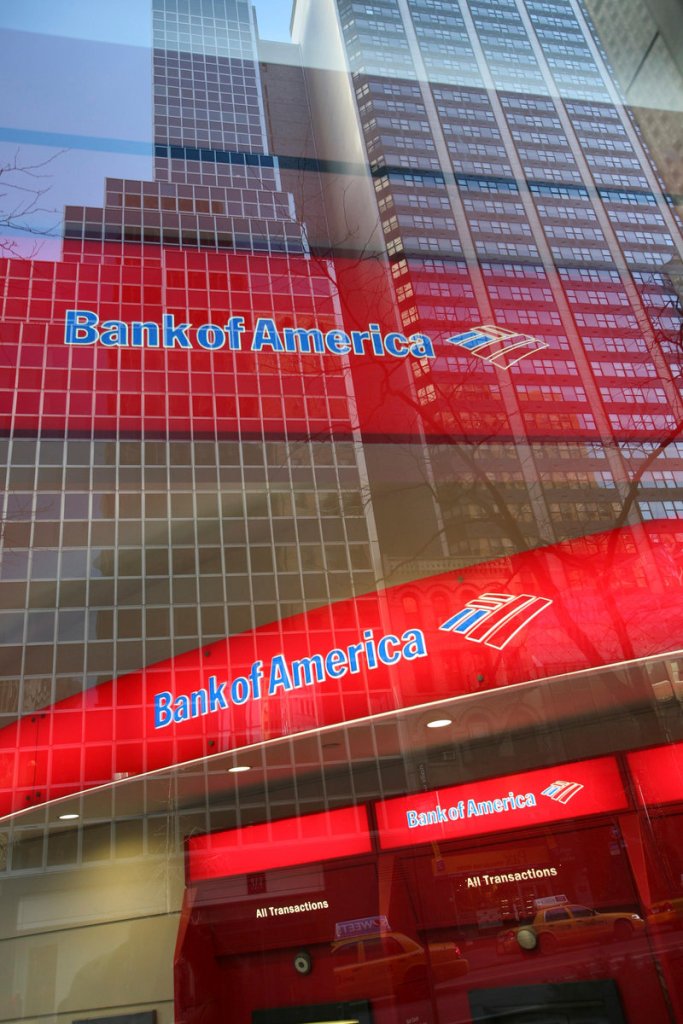NEW YORK — Free checking as we know it is ending.
The days when you could walk into a bank branch and open an account with no charges and no strings attached appear to be over. Now you have to jump through some hoops – keep a high balance, use direct deposit or swipe your debit card several times a month.
One new account at Bank of America charges $8.95 per month if you want to bank with a teller or get a paper statement.
Almost all of the largest U.S. banks are either already making free checking much more difficult to get or are expected to do so soon, with fees on even basic banking services.
It’s happening because a raft of new laws enacted in the past year, including the financial overhaul package, have led to an acute shrinking of revenue for the banks. So they are scraping together money however they can.
BofA, which does business with half the households in America, announced a dramatic shift Tuesday in how it does business with customers. One key change: Free checking, a mainstay of American banking in recent years, will be nearly unheard of.
“I’ve seen more regulation in the last 30 months than in the last 30 years,” said Robert Hammer, CEO of RK Hammer, a bank advisory firm. “The bottom line for banks is shifting enormously, swiftly and deeply, and they’re not going to sit by twiddling their thumbs. They’re going to change.”
In the past year, lawmakers in Washington have enacted a range of new laws aimed at protecting bank customers from harsh fees, like the $35 charged to some BofA customers who overdrew their accounts by buying something small like a Starbucks latte.
These and other fees were extremely lucrative. According to the financial services firm Sandler O’Neill, they made up 12 percent of BofA’s revenue.
CEO Brian Moynihan acknowledged in a conference call Tuesday that overdraft fees were generating a lot of income. But the bank was also losing customers who were often taken aback by the high hidden fees.
Checking accounts were being closed at an annual rate of 18 percent, he said, and complaints were at an all-time high.
So Moynihan ended overdraft charges on small debit-card transactions. He says the rate of account closings have since dropped 27 percent.
To make up for lost fees, he also started thinking of new products. In August, the bank introduced a new “eBanking” account, where customers were offered a free checking account if they banked online. The catch: If they opt for paper statements, or want access to tellers for basic transactions, they would be charged a monthly fee of $8.95.
This summer, BofA also started offering “emergency cash” for a $35 fee to customers who went to the ATM for withdrawals that would exceed their bank balance. Moynihan said 50 percent of these customers opted to go ahead with the fee.
“We are now in an era where consumers will be buying products from banks, even if it’s a checking account,” said Brian Riley, senior research director for bank card practice at consultant TowerGroup. He noted that several banks have started charging $7.50 for paper statements.
Send questions/comments to the editors.



Success. Please wait for the page to reload. If the page does not reload within 5 seconds, please refresh the page.
Enter your email and password to access comments.
Hi, to comment on stories you must . This profile is in addition to your subscription and website login.
Already have a commenting profile? .
Invalid username/password.
Please check your email to confirm and complete your registration.
Only subscribers are eligible to post comments. Please subscribe or login first for digital access. Here’s why.
Use the form below to reset your password. When you've submitted your account email, we will send an email with a reset code.